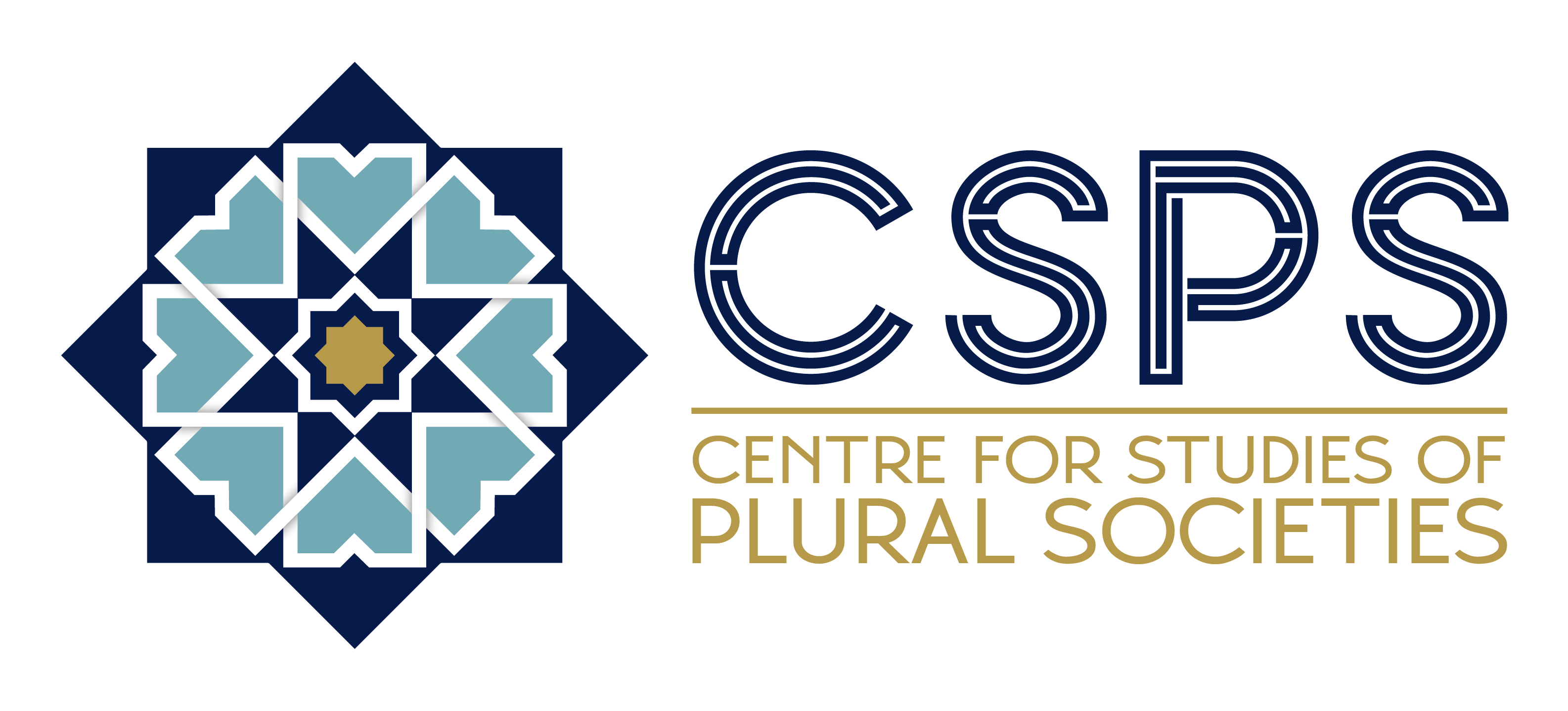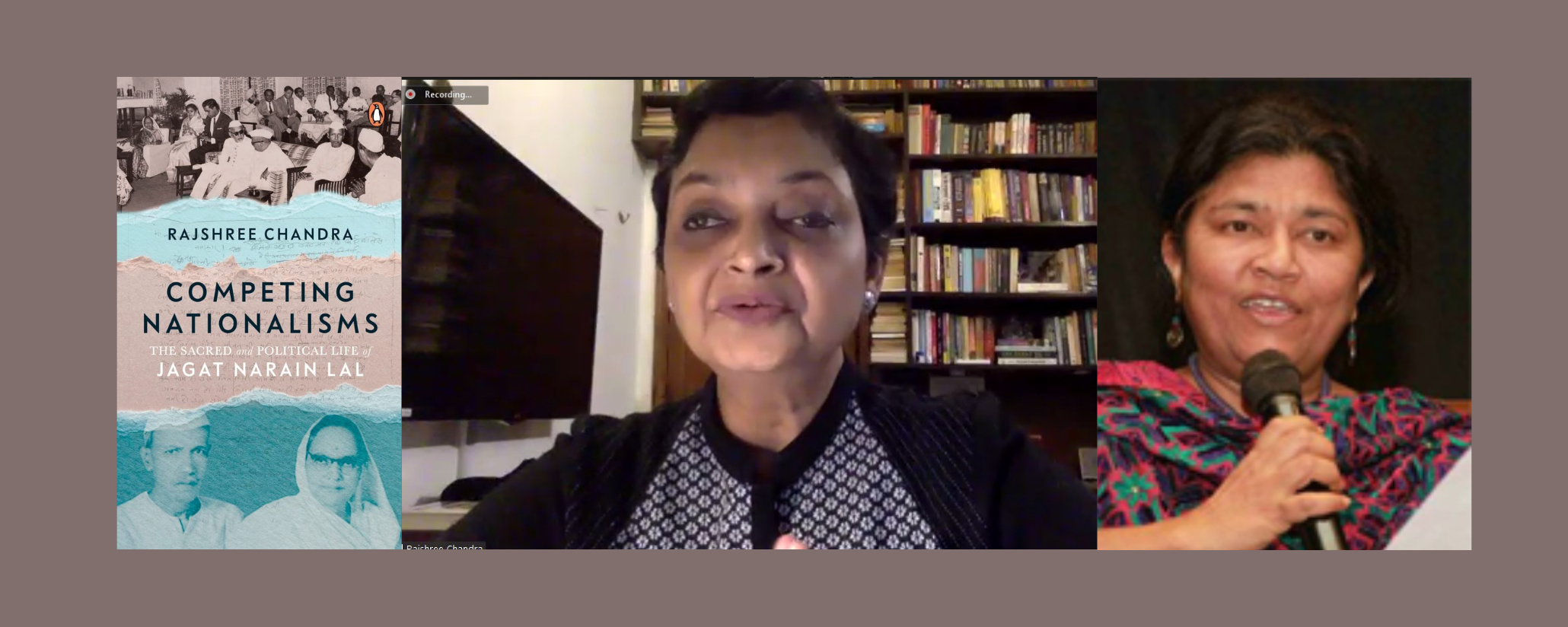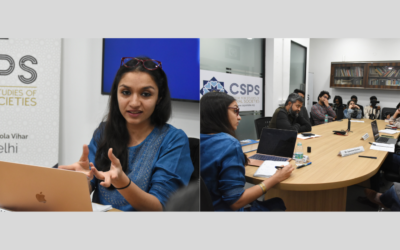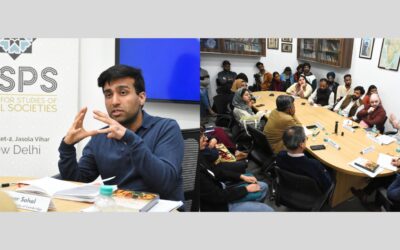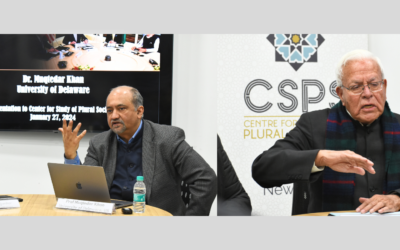Centre for Studies of Plural Societies organised a book discussion on Competing Nationalisms: The Sacred and Political Life of Jagat Narain Lal on 18th Dec 2021 at 6 pm (IST), authored by Prof. Rajshree Chandra.
About the Author
Prof. Rajshree Chandra is a professor of political science at Janki Devi Memorial College, University of Delhi, and is a senior visiting fellow at the Centre for Policy Research. She is the author of The Cunning of Rights (2016) and Knowledge as Property (2010), and Competing Nationalisms: The Sacred and Political Life of Jagat Narain Lal (2021). Her research areas include political theory, normative and critical legal theory, and science and technology studies.
About the Chair
Prof. Sucheta Mahajan is a professor at the Centre for Historical Studies, Jawaharlal Nehru University, New Delhi. She has authored Independence and Partition: The Erosion of Colonial Power in India (2000); India’s Struggle for Independence (1988; with Bipan Chandra et al.); RSS, School Texts and the Murder of Mahatma Gandhi- The Hindu Communal Project (2008; with Aditya and Mridula Mukherjee) and Education and Social Change: MVF and Child Labour (2008). Her areas of interest include the short and long history of the twentieth century, its politics, political economy and social change.
Commencement of the session
The book upholds the living memories of the freedom movement through the life of Jagath Narain Lal, a very religious and spiritual person. Prof. Sucheta Mahajan commenced the discussion by informing how Lal transcends various strands of nationalism and how he was initiated into the freedom struggles by his contemporaries. Prof. Mahajan informed the audience about the important dialectic of forgetfulness and remembering in the making of a nation and how Lal focused on the importance of forgetfulness to make both communities thrive in the nation.
Prof. Rajshree Chandra, the author of the book, told the audience how she recalled her grandfather’s reaction to the struggles, the bodily pathologies, and the emotional turmoils while writing the book. She said, “when you see history from the perspective of a person you begin to have a certain empathy and compassion and view the period (of the freedom struggle) with a little more nuance than you would.” Responding to Prof. Mahajan on the dialectic of forgetfulness, Prof. Chandra said that there is the notion of two different memory projects, one of Gyanendra Pandey’s ideas of recreating the sociology and anthropological state of a specific period through the role of memory and the second being using memory as something that contributes to one’s pride. Lal’s “forgetting”, however, focuses on the idea of pride, and as long as memory focuses on feeding into many polarising ideas of accusations, indictments etc., it will contribute to building two mutually conflicting “us” and “them.”
The four idioms viz. Ascetic Nationalism, Hindu Nationalism, Anti-colonialism and Civic nationalism are the book’s core ideas. The chapters in the book unfold the trajectories of these four competing strands of nationalism. In the introductory chapter, Prof. Chandra constructs a frame of nationalist consciousness. While explaining the journey of Lal as a freedom fighter, she says, “In seeking freedom for one’s self, and simultaneously for the nation, in seeking solace in the redemptive potential of Hinduism, but politicising it for political goals; in articulating the politics of both the Indian National Congress and the Hindu Mahasabha, Jagat Narayan became a repository of many conflicting strands of Indian nationalism.”
Discussing ‘Ascetic Nationalism’, she focused on the idea of renunciation, self-fashioning and combining various decentered actions. She argued, “Indian nationalist practices of almost all political and ideological hues adopted the ethics of asceticism as a mode of both defying imperial subjugation and refashioning the self in relation to the nation.” The ascetic practices are aligned with an idea of duty to a higher self or entity, like a nation, of selfless action, sacrifice and renunciation of desires which have the power to defy both colonial knowledge and rule.
The third chapter, “From Hinduism to Hindu Nationalism”, unveiled Lal’s motivations for using politics as an arena to represent Hindu interest and identity. He was influenced by the mentors like M.K. Gandhi, Madan Mohan Malviya, B.S. Moonje, and most importantly, his spiritual mentor, Swami Rama Tirath, from whom he imbedded the idea of spiritual patriotism, which preached that “you must realise unity with God, realise first your unity with the whole nation.”
The fourth chapter discusses ‘Anticolonialism,’ where he said that Indian nationalism had to be re-equipped to move away from the western standard of liberal Democratic nationalism. Secularism, for Lal, was an imported existential idea from the west, and he insisted on having a state that does not interfere with religion rather than having a state without religion. He emphasised the right to religion, citizenship, freedom of the press, labour rights and linguistic reorganisation to have a distinctive Indian Constitution.
Prof. Chandra depicted how Lal found multiple resolutions in the idea of civic nationalism. The terms ‘civic’ and ‘nationalism’ have conflicting mandates, particularly in a culturally diverse country like India. The word ‘civic’ implies the individual freedom or identity above the national identity embracing the differences, whereas nationalism thrives on homogeneity or unity subsiding the differences. The book’s last chapter explores Lal’s lived experiences in the post-independent period and how there was a rupture with the civic consensus in the present society with hegemony as the tool of destruction.
Prof. Chandra urged the present and future generations to look at the freedom fighters with more compassion and uphold the ideas that propagate the inclusion of diversities.
The report is prepared by CSPS Research Interns Arna Dirghangi and Shivang Jariwala.
